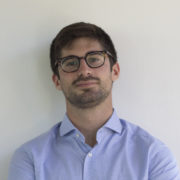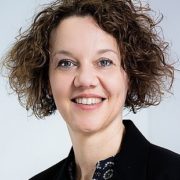Cycling Cities

Cycling has significant economic benefits—for individuals, cities, and society—and functions as a low-cost, high-yield, scalable solution to climate and equity issues in cities. Investments in cycling infrastructure create jobs and opportunities to expand existing industries or develop new ones. The scale of investment needed to achieve higher cycle mode shares and have a real impact on climate change is small compared to other modes and strategies, and presents one of the highest returns on investment.
In this webinar, speakers will share insights into why more people cycling is good for urban economies. Dana Yanocha (ITDP) will present ITDP’s newest report, Making the Economic Case for Cycling, which links investing in cycle infrastructure to quantifiable cost savings and economic opportunities.
This webinar will feature live interpretations in Spanish, Portuguese and Bahasa Indonesia.

Dana’s (she/her/hers pronouns) work at ITDP includes research and analysis of trends in sustainable transportation focused primarily on cycling, bikeshare, and other forms of shared mobility. She has led the development of key ITDP publications, including the 2018 Bikeshare Planning Guide, and several policy briefs.
Dana is passionate about identifying connections between sustainable development’s social, economic, and environmental spheres, with a particular interest in guiding cities to strengthen transportation networks, leverage emerging technology and innovations, and improve overall accessibility. Prior to joining ITDP in 2017, Dana worked for the Chaddick Institute for Metropolitan Development in Chicago and for Resources for the Future, an environmental economics think tank in Washington, DC. She holds an MA in Sustainable Urban Development from DePaul University.

Eduardo is a transport economist, with a bachelor’s degree in Economics and Social Sciences from the Bocconi University in Milan, and a master’s in Urban and Transport Economics at the VU in Amsterdam.
At Decisio, he deals with cost benefit analysis and active mobility and sustainable energy projects.

Prof. Dr. habil. Sonja Kahlmeier has been at the FFHS since November 2018, where she heads both the Health Department and the research there. In addition to general public health topics and teaching, her focus is on the topic of physical activity and health, where she deals with policies and strategies for promoting physical activity, with transport-related and economic approaches. Before FFHS, she worked at the Institute for Epidemiology, Biostatistics and Prevention (EBPI, formerly ISPM) at the University of Zurich, and at the Division for Noncommunicable Diseases and Environment at the European Regional Office of the World Health Organization, where she was responsible for the same topics.
Prof. Dr. habil. Sonja Kahlmeier holds a master’s degree in environmental sciences from ETH Zurich, a doctorate in epidemiology from the University of Basel, a habilitation in public health from the University of Zurich and a professorship at SUPSI.